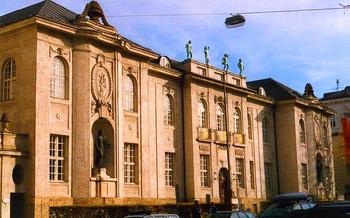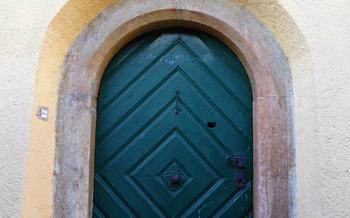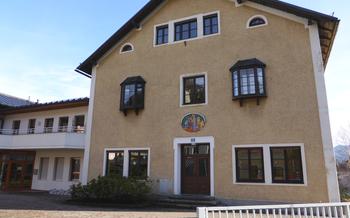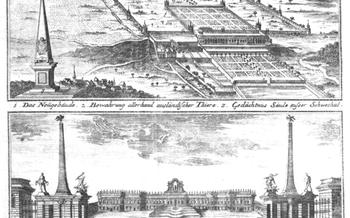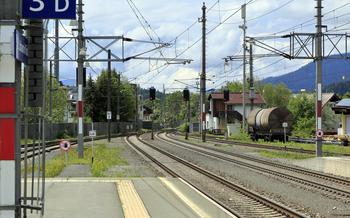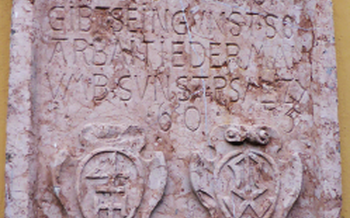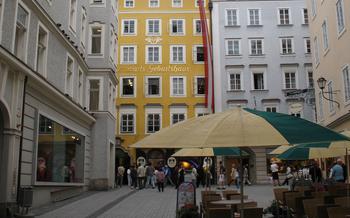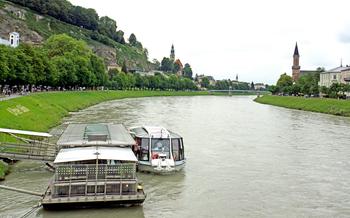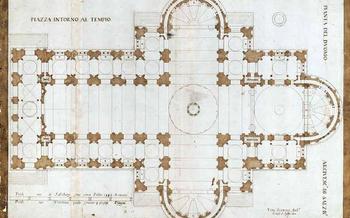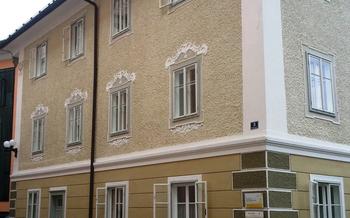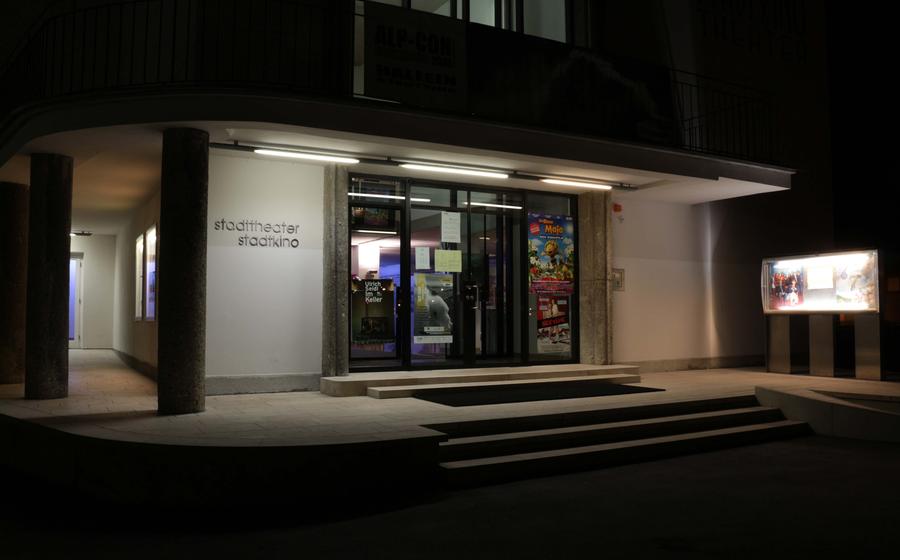
Mozarteum University of Salzburg
- History of the Mozarteum University of Salzburg
- The Mozarteum Today: A Legacy of Excellence in Music Education
- Campus and Facilities
- Student Life at the Mozarteum
- Curriculum
- Specialized Music education
- Practical Training
- Global Impact
- Admissions
- Tuition and Financial Aid
- Career Opportunities
- Research and Performance
- Community Outreach
- Special Events
- Visiting the Mozarteum
- Staying in Salzburg
- Getting to Salzburg
- Insider Tips
History of the Mozarteum University of Salzburg
The Mozarteum University of Salzburg is a world-renowned institution of higher education dedicated to music and the performing arts. Its roots can be traced back to 1841, when the Mozarteum Foundation was established by a group of local musicians and music lovers. The foundation's mission was to promote the study and performance of classical music, particularly the music of Wolfgang Amadeus Mozart, who was born in Salzburg in 175
In 1870, the Mozarteum Foundation opened a music school, which quickly gained a reputation for excellence. In 1914, the school was granted the status of a conservatory, and in 1922, it was renamed the Mozarteum Academy. In 1998, the academy was finally granted university status, becoming the Mozarteum University of Salzburg.
Throughout its history, the Mozarteum has played a vital role in the development of classical music. It has been home to some of the world's most renowned musicians, including Herbert von Karajan, Zubin Mehta, and Riccardo Muti. The university has also been instrumental in the preservation and promotion of Mozart's music. Every year, the Mozarteum hosts the Salzburg Mozart Festival, one of the most prestigious classical music festivals in the world.
Today, the Mozarteum University of Salzburg is a leading institution for music education and research. It offers a wide range of programs, from undergraduate to doctoral degrees, in all areas of music. The university is committed to providing its students with the highest quality of education and training, and it has a strong track record of producing successful musicians and performers.
The Mozarteum Today: A Legacy of Excellence in Music Education
Today, the Mozarteum University of Salzburg remains a leading institution for music education, attracting students from all over the world. It offers a wide range of academic programs, including bachelor's, master's, and doctoral degrees, in a variety of music disciplines, including performance, composition, conducting, and music education. The university's faculty is composed of renowned musicians and scholars, many of whom are active performers and composers.
The Mozarteum is committed to providing its students with the highest quality of music education, and the university's curriculum is designed to develop students' musical and artistic talents to their fullest potential. Students have the opportunity to learn from and perform with world-class musicians, and they are encouraged to explore their own creativity and develop their own unique musical voices.
In addition to its academic programs, the Mozarteum is also home to a vibrant student community. Students come from a variety of backgrounds and cultures, and they bring a wealth of experience and talent to the university. There are many opportunities for students to perform and collaborate, both within the university and in the wider community. The Mozarteum also offers a variety of student services, including housing, financial aid, and counseling.
The Mozarteum's commitment to excellence is evident in its graduates, who have gone on to successful careers in music around the world. Many Mozarteum alumni have become renowned performers, composers, conductors, and music educators. The university's strong network of alumni provides students with valuable opportunities for networking and career development.
Campus and Facilities
The main building of the Mozarteum University of Salzburg is located in the heart of the city, just a short walk from the Mirabell Palace and Gardens. Built in 1841, the building is a beautiful example of neoclassical architecture and houses the university's administrative offices, classrooms, and practice rooms. The university also has a number of other buildings throughout the city, including the Mirabell Palace, the Anton Neumayr House, and the university's concert hall.
The Mirabell Palace is a stunning Baroque palace that was built in the 17th century. It is located just a short walk from the main building and houses the university's library, as well as a number of concert halls and performance spaces. The Anton Neumayr House is a 19th-century building that is located near the Mirabell Palace. It houses the university's museum, which features a collection of musical instruments and artifacts from the university's history.
The university's concert hall is located in the main building and is one of the most prestigious concert halls in Salzburg. It hosts a variety of concerts and performances throughout the year, including performances by the university's faculty and students. The university also has a number of other performance spaces, including the Mirabell Palace Concert Hall and the Anton Neumayr House Concert Hall. These spaces are used for a variety of concerts, recitals, and master classes.
Student Life at the Mozarteum
The Mozarteum is a vibrant and diverse community of students from all over the world. The university's small size and intimate setting foster a sense of camaraderie and support among the students, who come together to share their love of music and learn from each other.
Students at the Mozarteum have a wide range of opportunities to perform and collaborate. The university hosts regular concerts, recitals, and master classes, and students are encouraged to participate in these events to gain experience and showcase their talents. The Mozarteum also has a number of student ensembles, including the Mozarteum Orchestra, the Mozarteum Chamber Orchestra, and the Mozarteum Wind Ensemble. These ensembles perform regularly throughout the year, both on campus and at venues throughout Salzburg.
The Mozarteum is located in the heart of Salzburg, one of the most beautiful and vibrant cities in Europe. Students have easy access to the city's many cultural attractions, including the Salzburg Festival, the Salzburg State Theater, and the Salzburg Museum. The city is also home to a number of charming cafes, restaurants, and shops, making it a great place to live and study.
Curriculum
The Mozarteum University of Salzburg offers a wide range of courses in music, including performance, composition, conducting, music education, and music therapy. The university's academic programs are designed to provide students with a comprehensive education in music, with a focus on classical music performance and composition.
Specialized Music education
Students at the Mozarteum have the opportunity to specialize in a particular area of music, such as piano, violin, cello, voice, or composition. The university's faculty includes some of the world's leading musicians and educators, and students have the opportunity to learn from and perform with them.
Practical Training
The Mozarteum emphasizes practical training and experience as an essential part of a music education. Students have the opportunity to perform regularly in a variety of settings, including concerts, recitals, and master classes. The university also has a number of ensembles and orchestras that students can participate in.
Global Impact
The Mozarteum attracts students from all over the world, creating a truly international learning environment. This diversity of perspectives and experiences enriches the educational experience for all students, and helps to prepare them for careers in a globalized music industry.
Admissions
Prospective students hoping to join the ranks of Mozarteum's esteemed student body must brace themselves for a rigorous admissions process. Gaining entry to this elite institution requires a combination of exceptional musical talent, academic excellence, and an unwavering dedication to the world of classical music.
To be considered for admission, applicants must submit an application form accompanied by a detailed resume showcasing their musical accomplishments, academic transcripts, and letters of recommendation. Shortlisted candidates will then be invited to participate in an audition, where they will have the opportunity to demonstrate their musical abilities before a panel of esteemed Mozarteum faculty members. These auditions typically consist of performances of classical repertoire and sight-reading exercises.
Interviews play an integral role in the admissions process, providing the admissions committee with a chance to assess the applicant's personality, motivation, and overall fit with the Mozarteum community. During these interviews, candidates will be asked questions about their musical background, aspirations, and reasons for choosing Mozarteum.
A well-rounded application, coupled with a stellar performance at the audition and a successful interview, increases the likelihood of securing a coveted spot among Mozarteum's student body. Early submission of applications is strongly encouraged, as places are limited and competition is fierce. The admissions deadlines vary depending on the program and nationality of the applicant and can be found on the Mozarteum University website.
Tuition and Financial Aid
Attending the Mozarteum University of Salzburg comes with financial obligations, including tuition fees and living expenses. Tuition fees vary depending on the program and level of study, but generally, international students can expect to pay around €15,000 per year. In addition, students should budget for living expenses, which can range from €800 to €1,200 per month, depending on lifestyle and personal needs.
To help offset the cost of attendance, the Mozarteum offers a range of financial aid options, including scholarships, grants, and loans. Scholarships are awarded based on merit, academic achievement, and financial need, and typically cover a portion of the tuition fees. Grants are similar to scholarships but are typically need-based and do not require repayment. Loans are also available to students who need additional financial assistance, but these must be repaid after graduation.
The Mozarteum encourages prospective students to apply for financial aid as early as possible, as the deadlines for applications vary depending on the type of aid and the student's country of origin. To increase the chances of securing financial assistance, students should submit a strong application, including a well-written personal statement, transcripts, and letters of recommendation.
Planning ahead and carefully managing finances is crucial for students attending the Mozarteum. The university's Financial Aid Office provides guidance and support to students throughout the financial aid process, helping them navigate the application process, understand their financial aid options, and make informed decisions about funding their education.
Career Opportunities
The Mozarteum University of Salzburg provides its graduates with access to a wide range of career opportunities in the music industry. The university's strong network of alumni, which includes many successful musicians, conductors, and composers, plays a crucial role in helping graduates find jobs and launch their careers.
The Mozarteum's Career Services office provides students with guidance and support throughout the job search process. The office offers resume and cover letter writing workshops, interview preparation sessions, and networking events. The university also hosts an annual career fair, which brings together representatives from leading music organizations from around the world.
Many graduates of the Mozarteum go on to pursue careers as performers, whether as soloists, chamber musicians, or orchestral players. Others become music teachers, either in private studios, public schools, or universities. Some graduates pursue careers in music journalism, music therapy, or music administration.
Here are just a few examples of successful careers pursued by Mozarteum graduates:
- Conductor Herbert von Karajan: Karajan was one of the most celebrated conductors of the 20th century. He served as the music director of the Vienna Philharmonic Orchestra for over 30 years and led many of the world's most prestigious orchestras.
- Composer Wolfgang Rihm: Rihm is one of the most important composers of contemporary classical music. His works have been performed by leading orchestras and ensembles around the world.
- Pianist Mitsuko Uchida: Uchida is one of the most acclaimed pianists of her generation. She has performed with major orchestras throughout the world and has recorded over 50 albums.
The Mozarteum University of Salzburg provides its graduates with the skills and knowledge they need to succeed in a wide range of music careers. With its strong network of alumni and its commitment to excellence, the university is a springboard for success for young musicians from all over the world.
Research and Performance
The Mozarteum is not only a renowned educational institution but also a vibrant center for research and performance. The university's commitment to these areas is evident in its many research centers and institutes, dedicated to advancing knowledge and understanding in various fields of music. These centers facilitate interdisciplinary collaboration, foster innovation, and provide students with opportunities to engage in cutting-edge research alongside renowned scholars.
The Mozarteum's faculty and students are actively involved in numerous research projects, exploring diverse aspects of music theory, history, composition, and performance. Their work contributes to the expansion of musical knowledge and enriches the understanding of musical traditions and practices. The university's research findings are disseminated through publications, conferences, and presentations, further contributing to the advancement of music scholarship.
In addition to its research endeavors, the Mozarteum is renowned for its exceptional performances. The university's faculty and students regularly showcase their talents in concerts, recitals, and operas, delighting audiences with their virtuosity and musicianship. These performances provide students with invaluable opportunities to hone their skills, collaborate with fellow musicians, and share their passion for music with the community.
The Mozarteum's commitment to research and performance is integral to its mission of promoting and preserving classical music. Through its scholarly pursuits and artistic endeavors, the university plays a vital role in ensuring the continued vitality and appreciation of this rich and diverse tradition.
Community Outreach
The Mozarteum is committed to community outreach and plays an active role in making classical music accessible to everyone. The university offers a wide range of educational programs and workshops for people of all ages and skill levels. These programs include master classes, lectures, and concerts, as well as opportunities for students to perform with the Mozarteum Orchestra.
The Mozarteum also collaborates with other organizations in the city of Salzburg to promote classical music. For example, the university partners with the Salzburg Festival to present the annual Mozarteum Summer Festival, which features a variety of concerts, operas, and other performances. The Mozarteum also works with the Salzburg State Theater to present the International Mozart Competition, which is held every three years and is one of the most prestigious classical music competitions in the world.
Through its community outreach efforts, the Mozarteum helps to promote and preserve classical music, while also making it accessible to a wider audience. The university's commitment to community outreach is an important part of its mission to be a leading institution for music education and performance.
Special Events
The Mozarteum is renowned for its many special events, which attract visitors from all over the world. One of the most popular events is the annual Mozarteum Summer Festival, which takes place each July and August. The festival features a wide range of concerts, operas, and other musical events, all of which are performed by world-renowned artists.
Another major event is the International Mozart Competition, which is held every three years. This prestigious competition attracts some of the most talented young musicians from around the globe, who compete for the chance to win a gold medal and a cash prize.
The Mozarteum Chamber Orchestra is another highlight of the university's special events calendar. The orchestra is made up of some of the most talented students and faculty at the Mozarteum, and they perform a variety of classical music concerts throughout the year.
In addition to these major events, the Mozarteum also hosts a variety of other special events throughout the year, including concerts, lectures, and master classes. These events provide a great opportunity for visitors to learn more about classical music and to experience the Mozarteum's vibrant musical community.
Visiting the Mozarteum
The Mozarteum University of Salzburg is a must-visit for any lover of classical music. The university offers a variety of opportunities for visitors, including tours, concerts, and exhibitions.
A visit to the Mozarteum is a great way to learn more about the history of classical music and the university's role in its development. Visitors can take a guided tour of the university's main building, which includes the Great Hall, the Mozarteum Museum, and the Mirabell Palace. The museum houses a collection of instruments, manuscripts, and other artifacts related to the history of the university and classical music. The Mirabell Palace is a beautiful Baroque palace that is now used for concerts and other events.
Visitors can also attend concerts and recitals given by the university's faculty and students. The Mozarteum Concert Hall is a state-of-the-art facility that hosts a variety of performances throughout the year. The university also has a number of other performance spaces, including the Anton Neumayr House and the Mozarteum Chamber Music Hall.
The Mozarteum is a great place to shop for souvenirs and gifts related to classical music. The university's gift shop sells a variety of items, including CDs, DVDs, books, and souvenirs. Visitors can also find a variety of restaurants and cafes in the area around the university.
The best time to visit the Mozarteum is during the summer months, when the weather is warm and the university is hosting a variety of special events. However, the university is open year-round and offers a variety of activities for visitors throughout the year.
Staying in Salzburg
Salzburg offers a wide range of accommodation options to suit all budgets and preferences. From budget-friendly guesthouses to luxurious five-star hotels, there's something for everyone. For those who want to be close to the action, the Old Town is a great place to stay. With its narrow cobblestone streets, charming cafes, and historical landmarks, the Old Town is a vibrant and lively area. If you're looking for a more relaxed atmosphere, the Neustadt (New Town) is a good option. With its leafy streets, parks, and museums, the Neustadt is a quieter and more residential area.
There are also plenty of restaurants and cafes to choose from in Salzburg. From traditional Austrian cuisine to international fare, there's something to suit every taste. For a truly authentic experience, try one of the many biergartens, where you can enjoy a stein of beer and some traditional Austrian food.
When it comes to getting around Salzburg, the city's public transportation system is excellent. With buses and trams running throughout the city, it's easy to get around without a car. The city is also very walkable, so you can easily explore the many sights on foot.
For those who are on a budget, there are a number of ways to save money on your trip to Salzburg. One way is to stay in a hostel or guesthouse instead of a hotel. Another way to save money is to eat at local restaurants instead of tourist traps. You can also take advantage of the many free activities that Salzburg has to offer, such as walking tours and concerts.
Getting to Salzburg
Salzburg is a well-connected city, making it easy to reach by various means of transportation. Flying into Salzburg Airport (SZG), located just a few kilometers from the city center, is a convenient option. The airport offers direct flights from several major European cities, and connecting flights from further afield. Alternatively, Salzburg is well-served by train, with direct connections to major cities in Austria, Germany, and neighboring countries. Trains arrive at the Salzburg Hauptbahnhof, the city's main railway station, which is within walking distance of many hotels and attractions. For those traveling on a budget or seeking a scenic journey, buses offer a more affordable option and provide opportunities to enjoy the surrounding countryside. Salzburg's central bus station is conveniently located near the city center.
Once in Salzburg, getting around is a breeze. The city's public transportation system is efficient and affordable, with buses and trams connecting all major areas. Visitors can purchase a Salzburg Card, which includes unlimited use of public transportation, as well as free or discounted admission to many museums and attractions.
Insider Tip:
Consider renting a bicycle to explore Salzburg. The city is bike-friendly, with designated bike lanes and numerous bike rental shops. Cycling is a great way to experience the city's charm, navigate the narrow streets, and enjoy the picturesque surroundings.
Insider Tips
-
Hidden gem: For a truly unique musical experience, visit the Mozarteum's Baroque Hall, a stunning 17th-century concert hall hidden away within the university's main building. With its elegant frescoes and intimate atmosphere, it's the perfect place to experience the magic of classical music.
-
Saving money: Take advantage of the Mozarteum's student discounts on concerts and other events. Simply show your student ID at the box office to receive a reduced price.
-
Local tradition: Attend a "Mozartkugeln" workshop to learn how to make these delicious chocolate truffles, a Salzburg specialty named after Wolfgang Amadeus Mozart.
-
Unique experience: Don't miss the chance to see a performance by the Mozarteum Orchestra, one of the world's leading ensembles for classical music. Their concerts are a highlight of the Salzburg music scene.
